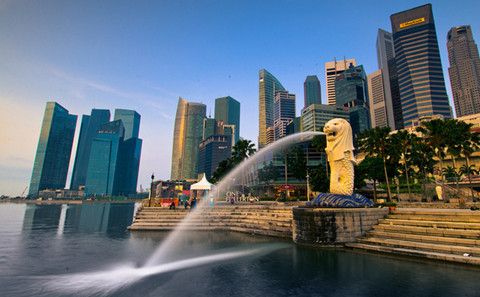Managing the Water Impact of Asia’s Industrial Boom
Published on by Water Network Research, Official research team of The Water Network in Business
UN Water estimates that as much as 70% of industrial wastewater is dumped into waterways untreated in developing countries globally. In Asia Pacific, the Asian Development Bank puts this figure at 80%.
by Vaidehi Shah

Switching on a light at home, refilling a car with petrol or signing for a package delivery is unlikely to prompt many people to question the impact of their actions on water pollution.
But this is a central concern for the power plants, petrochemical companies and shipping firms that deliver these conveniences to consumers. These sectors not only rely heavily on water for their operations, but also risk incurring heavy penalties if they violate regulations on wastewater treatment.
Regulators keep a close eye on the impact of these heavy industries for good reason; they are a major cause of freshwater contamination and pollution, and the consequences of pollution can be devastating.
Globally, UN Water, a collaboration between various United Nations agencies, estimates that the fossil fuel sector alone contaminates between 15 and 18 billion cubic metres of freshwater resources every year—this is equivalent to 7.2 million Olympic-size swimming pools. The manufacturing, agriculture, and shipping sectors compound this problem further.
As ADB puts it, “wastewater must be seen as a resource with potential financial returns”, citing gains such as the production of an alternate water supply for irrigation, cooling, or industrial use, generating energy or providing green employment opportunities.
Technology innovation to minimize risks
One company that has spent almost a century developing solutions that minimise the risks associated with inadequate wastewater management is Italian electrochemical technologies giant De Nora .
The company, which provides electrochemistry-based solutions for sectors such as renewable energy storage, mining, and agriculture, in 2015 set up a subsidiary, De Nora Water Technologies, to deliver its solutions for industrial and municipal wastewater treatment.
The company’s industrial water treatment technologies include systems that can produce sodium hypochlorite—a chemical to disinfect effluent water—on-site; machines that can pipe chlorine gas into effluent water to disinfect it; and treat water on offshore oil rigs and ships using a method called electrolysis to make it safe to discharge.
According to De Nora, which has had a presence in Singapore since the 1980s, Southeast Asia’s water treatment sector is worth some US$20 billion. The city-state is currently the company’s regional headquarters; providing sales and technical services to clients across Asia Pacific.
Vincenzo Palma, De Nora’s sales director for disinfection in Asia Pacific and China, tells Future Ready Singapore in a recent interview: “We see that Singapore can be a hub for expanding our technology into the Southeast Asian market.”
Scaling water treatment in Asia
De Nora’s presence in Singapore began with electrode manufacturing factories in the island nation’s Tuas industrial district in the 1980s. Since then, De Nora has evolved its presence in Singapore into a regional headquarters with sales and technical operations.
Today, it provides municipal water treatment technologies to the country’s national water agency even as it serves an industrial clientele of power plants, marine and offshore engineering firms, and environmental solutions firms in Singapore and the region.
While the primary motivation behind these companies engaging De Nora is the need to comply with wastewater treatment regulations, Palma shares that “we also see some companies using our technology to exceed regulatory requirements, and demonstrate that they are environmentally responsible”.
Now, the company has its sights set on rapid regional expansion. It reaffirmed this ambition at last year’s Singapore International Water Week (SIWW), a mega-event featuring a trade expo and conference around water issues.
In a statement, Luca Buonerba, De Nora’s global chief marketing and business development officer says that “we see enormous potential for our Singapore operation, which dates back to 80s, and our focus is now on improving the water and wastewater quality of the Southeast Asia region”.
Even though high levels of water pollution in Asia’s waterways show that many companies have not yet adopted adequate measures to ensure their effluent is clean and does not damage the ecosystems it enters, companies must realise that eventually their own operations will be affected, Palma says.
“For example, if you run an agricultural business and do not keep your surrounding waterways clean, the quality of your own crops will be affected,” explains Palma. The same goes for industries which require clean water for their operations.
Read more: Future Ready Singapore
Media
Taxonomy
- Water Pollution
- Water Quality
- Business Strategy
- Environment
- Pollution
- Environmental Impact Assessment
- Development & Management
- Water Quality Management
- Water Quality Monitoring
- Impact
- Water & Wastewater
- Sustainable Development